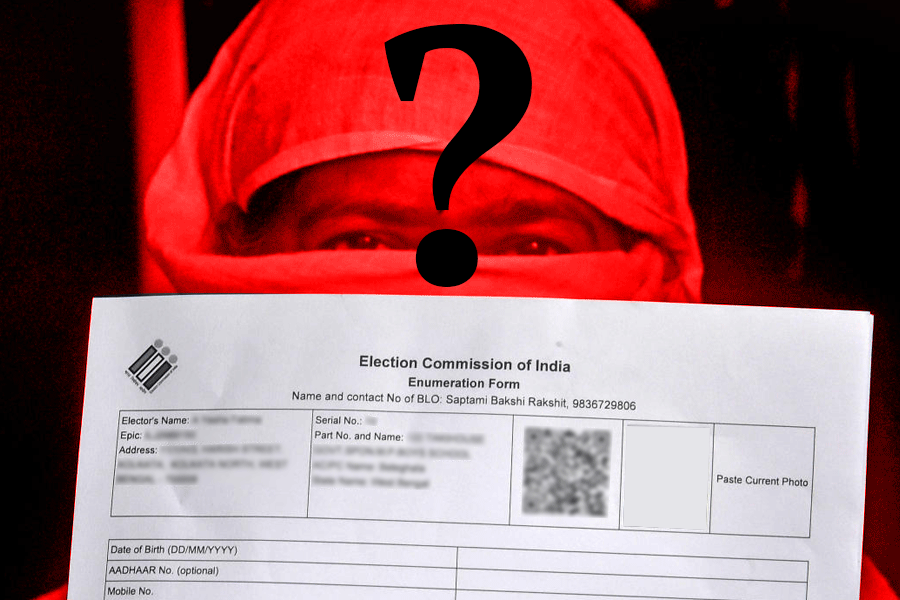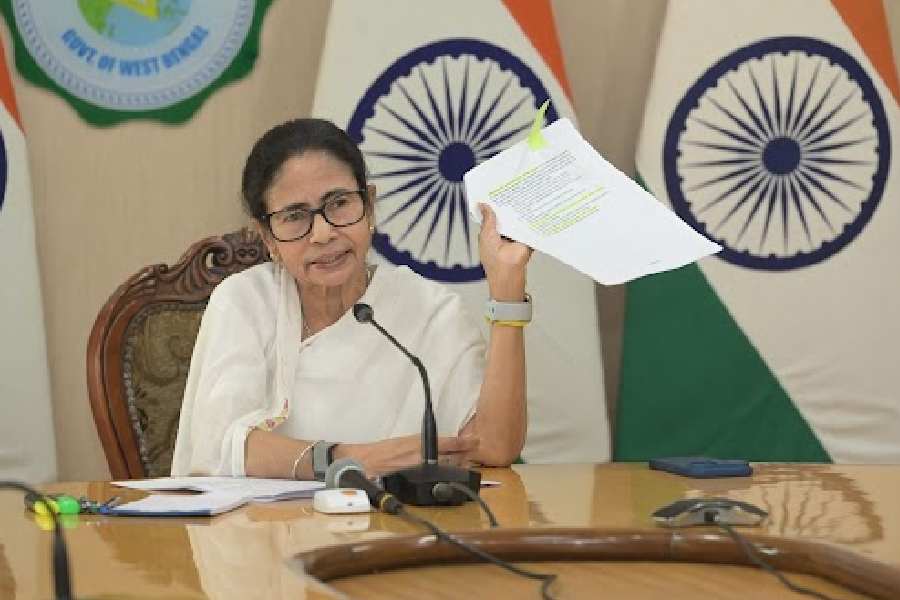 |
| Former Isro scientist Nambi Narayanan at his home in Thiruvananthapuram, Kerala, on Saturday |
Thiruvananthapuram, Sept. 8: When India launches its 100th space mission tomorrow, one of the architects of the rocket engines will be juggling two titles for a book on his life: Memories of a Spy or Ningalenne Oru Chaaranaakki (You made me a spy).
Forty-eight hours before Sunday’s lift-off, Kerala High Court ruled on Friday that the septuagenarian former scientist, S. Nambi Narayanan, is entitled to the Rs l0 lakh compensation the human rights commission had awarded him after it was proved that he was falsely branded a spy in the mid-1990s.
As the Indian Space Research Organisation today prepared to launch two foreign satellites on its Polar Satellite Launch Vehicle (PSLV), Narayanan recalled his glory days and how a former head of Isro had labelled him the “Princetonian”.
Narayanan was the leader of an Isro team that developed the liquid engine used on two stages of the PSLV.
His – and his family’s – life changed forever when he was arrested on the charge of leaking India’s space secrets to foreign powers. He has been repeatedly exonerated since then – the latest clean chit came yesterday.
The Isro espionage scandal had sent ripples through not just the space research community but also the political establishment. Much like the scam-reeking atmosphere now, a daily dose of often salacious revelations kept attention firmly focused on the charges.
The case whipped up such frenzy that chief minister and Congress veteran, the late K. Karunakaran, had to resign in 1995. (A.K. Antony, the current defence minister, was brought in for a fresh innings as chief minister).
But for the intermittent phone calls lauding Narayanan for yesterday’s high court verdict upholding his case, the air at his home in the Kerala capital belies any sign of the torment the family had to undergo after the espionage case hit the headlines.
The victim of a media witch-hunt that almost shattered his home, Narayanan, nestled on a sofa surrounded by miniatures of rockets and satellites, still has no qualms in fielding reporters’ questions.
But one of the titles he is toying with betrays the deep sense of hurt. “Ningalenne Oru Chaaranaakki (You made me a spy)” carries echoes of Ningalenne Communistaakki (You made me a communist), a cult play in the 1950s that was a clarion call to rebellion as well as a gut-wrenching wail against the feudal system then prevalent in Kerala.
“It’s only an interim relief the NHRC (National Human Rights Commission) had awarded. My defamation suit for Rs 1 crore compensation is pending before a sub-court here,” Narayanan explains.
The mood turns sombre as he adds: “No money can compensate my losses. I lost my prestige, reputation and became an outcast at several places. They are irrecoverable. Then the family trauma.”
Hailing from a middle-class Brahmin family with roots in Tirunelveli in Tamil Nadu, the arrest and subsequent developments based on what was a cooked up tale left Narayanan, his wife and two children shattered.
“My wife started showing signs of mental instability. She would shout at any stranger who came to our home saying they have come to harass me. We even found it difficult to secure an alliance for our son and it got much delayed,” Narayanan says.
The trauma hasn’t, however, made him vengeful. “I’m an old person. I have understood what the world is. I don’t have any enmity towards anybody. I knew I had not committed any crime as alleged. I had to establish it. It has been established and is being established again and again.”'
Narayanan remembers having met some reporters who had unabashedly put out stories about him being the ringleader of the plot to smuggle out rocket engine technology from India. Laced with titbits of a honey-trap allegedly involving two Maldivian women, the steamy stories kept many in Kerala spellbound then. But Narayanan is all-forgiving.
The Vikas liquid engine on the PSLV was built by Narayanan and colleagues under a unique pact with the French under which the Indian engineers helped “convert the knowledge and intellectual property” into an engine in return for technology.
“He was a key person involved in the realisation, testing and evaluation of the liquid stage,” says V. Siddhartha, a former space department official.
Narayanan believes certain vested interests were at play in the spy episode.
“The espionage case was started by people who did not know that rocket technology could not be smuggled just like that,” says Narayanan who recalls that it took India 19 years to build a final product from the Viking engine technology acquired from France under a legal contract.
“We took more than 100 man years of people, we stayed in Paris for three to five years and were backed by thousands of engineers in India, besides scores of industries. Isn’t it ridiculous to say that such a technology can be smuggled out by two illiterate women?” he asks. “Besides, when we invite tenders to fabricate engines, we give out the drawings for a small sum of money. Then what is the need for smuggling it?”
The false allegation levelled against Narayanan in 1994 was that he was trying to sell cryogenic engine technology – a sophisticated rocket engine that burns liquid oxygen and liquid hydrogen. “Ironically, we still do not have the technology. How can we sell something we do not have?” smiles the man who was then project director of the cryogenic engine effort.










